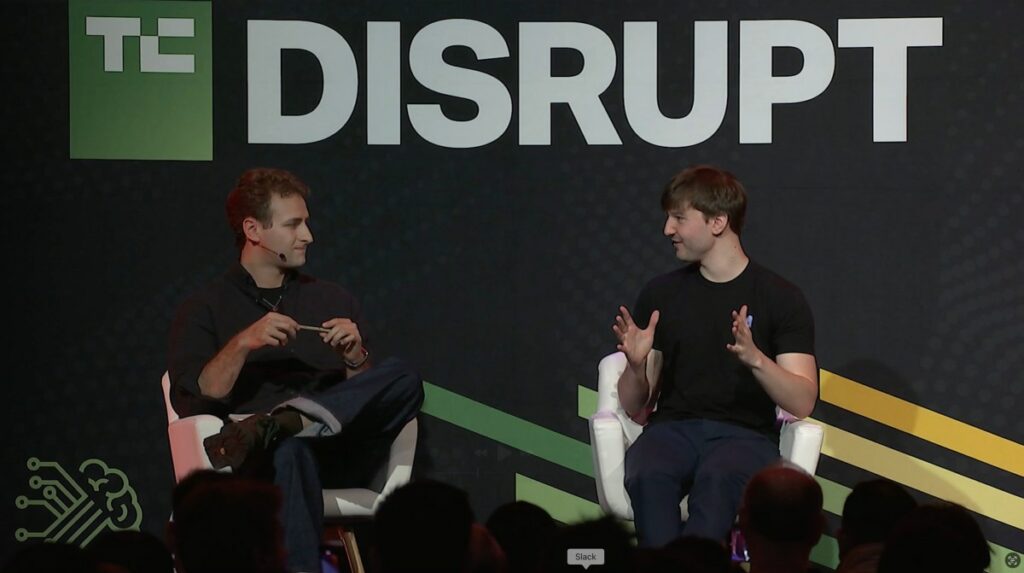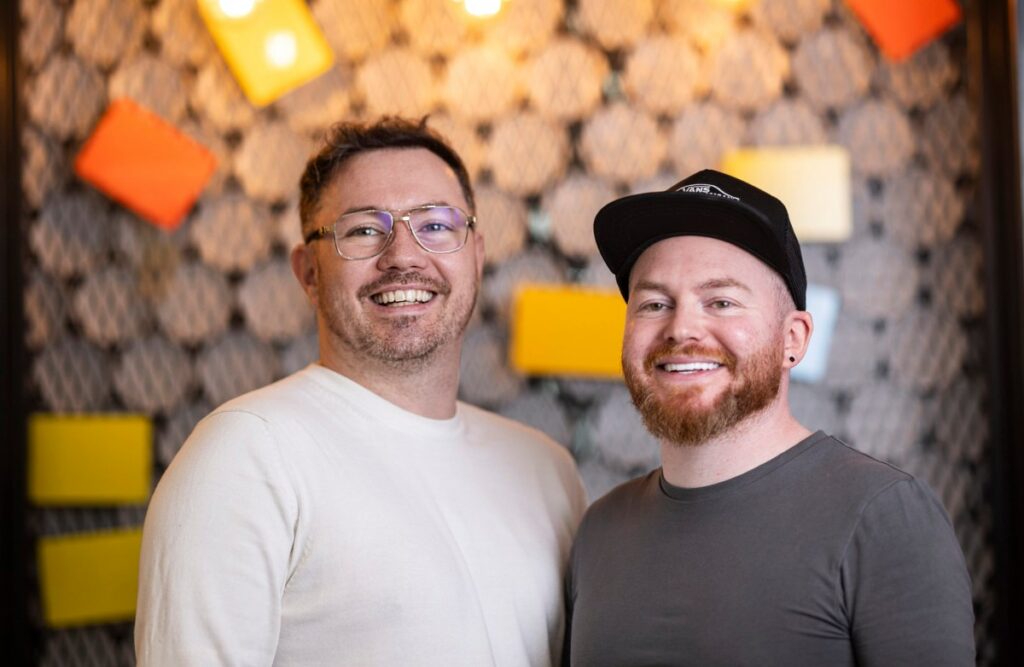Instead of signing expensive contracts with companies for their data, AI labs these days are trying a new tack: tapping former senior employees from those companies for their industry knowledge, Mercor CEO Brendan Foody said at TechCrunch Disrupt 2025 on Tuesday.
Speaking on a panel onstage, Foody cast Mercor’s marketplace as one of the main channels connecting the former employees of investment banks, consulting houses and law firms with AI labs which are looking to automate those industries. Some of Mercor’s customers include OpenAI, Anthropic, and Meta.
“There is an argument that Goldman Sachs doesn’t love the idea of having models that are able to automate their value chain,” said Foody onstage, using the Wall Street giant as an example. “It definitely shifts the competitive dynamics, and that’s part of the reason that the labs need us. Their customers don’t want to give them data to automate large portions of their value chains, so they need to hire contractors who previously worked at those companies, understand those workflows, and are willing to train models to automate them.”
Foody, the 22-year-old co-founder of Mercor, says his startup pays industry experts up to $200 an hour to fill out forms and write reports for AI training. The company now has tens of thousands of contractors, and says it doles out more than $1.5 million to them every day. Still, Foody says the startup remains profitable because AI labs are willing to pay even more for that valuable data.
In just under three years since its inception, Mercor has increased its annualized recurring revenue to roughly $500 million, and recently raised funding at a $10 billion valuation.
Incumbents across the economy have good reason to be resistant to Mercor’s rise, as their industry’s knowledge may be slipping out the back door through former employees on the startup’s marketplace, which could ultimately be used to automate their work. Foody acknowledged he may be exposing an inefficiency in the market, but said he wouldn’t call it a “loophole.”
In fact, Foody says some companies are already embracing this “new future of work.” He entertained the idea that Mercor’s marketplace could create a new type of gig economy, much like Uber did more than a decade ago. (Earlier this year, Uber’s former chief product officer, Sundeep Jain, joined Mercor as president.)
Techcrunch event
San Francisco
|
October 27-29, 2025
“There are companies that are embracing it and realize that the world is going to change very quickly,” said Foody. “There’s definitely another category of companies that are fearful, and worry about being dis-intermediated, and having their customers go directly to the AI labs or application layer platforms. My hunch is that the former category is going to turn out to be on the right side of history.”
While Mercor tries to extract knowledge from various industries, Foody said his startup tries to prevent contractors from committing corporate espionage — the illegal act of stealing proprietary information, trade secrets or intellectual property from one business and selling it to another.
But that’s easier said than done. Most of Mercor’s workforce are former employees of law firms, investment banks and other industries that are very secretive about their data. Foody said some of Mercor’s contractors still work at their day jobs, and just submit data on the side, and he claimed that contractors are instructed not to upload documents from their former workplace. Still, he acknowledged that it’s possible “there are things that happen” given the scale of his startup.
Foody argues that the knowledge in an employee’s head belongs to the employee, and not their company — a more generous view than many enterprises would take. Plus, in some of Mercor’s job postings, the startup toes the line between requesting an employee’s knowledge and their company’s data.
For example, Mercor is currently looking for the CTO or co-founder of a startup who “can authorize access to a substantial, production codebase” for AI evaluations, or potentially AI model training. In an email, Mercor told TechCrunch that a few startup CTOs have taken them up on this offer, but declined to disclose details of their contracts.
Mercor was one of the first data startups to recruit highly-skilled knowledge workers in the U.S. and pay them large sums to train AI models. Early in the AI boom, data vendors like Scale AI hired contractors in third-world countries to do fairly simple labeling jobs. Now, most of Mercor’s competitors — including Surge and Scale AI — have caught on that AI labs need experts to improve their AI models. Many data vendors have also started training “environments” to improve AI agents’ ability to complete real world tasks.
Mercor has clearly benefited from Scale AI’s misfortunes: Many AI labs stopped working with Scale AI after Meta made a large investment in the startup and hired its CEO. In the last year, Mercor has quintupled its value, but it still remains smaller than Surge and Scale AI, which are both valued at upwards of $20 billion.
Today, most of Mercor’s revenue comes from just a few AI labs, but Foody says the startup plans to partner with other industries in the future. He believes companies in law, finance and medicine will want help leveraging their data to train AI agents — something Mercor specializes in.
“Over time, ChatGPT will be better than the best consulting firm, better than the best investment bank, and better than the best law firm,” said Foody. “That’s going to transform the economy radically, which will be a broadly positive force that helps to create abundance for everyone.”


